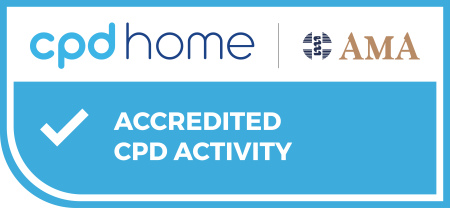Finding accredited CPD
The Eating Disorders course provides a comprehensive exploration of identifying, monitoring, and managing eating disorders in healthcare settings. This course is divided into two focused units, blending theoretical insights with practical approaches to patient care.
Unit 1: Understanding Eating Disorders – Part A
This foundational unit examines the diagnostic criteria and prevalence of eating disorders, emphasising the importance of early identification and intervention. Participants will explore high-risk populations, screening tools like the SCOFF and ESP questionnaires, and early warning signs across physical, psychological, and behavioural dimensions. Discussions include understanding the complexities of eating disorders, their potential functions as coping mechanisms, and their genetic and environmental underpinnings.
Key topics include:
Unit 2: Managing Eating Disorders – Part B
The second unit focuses on the practical aspects of managing eating disorders within a multidisciplinary framework. Participants will learn about medical monitoring protocols, admission criteria for inpatient care, and treatment pathways involving dieticians, mental health clinicians, and other specialists. The unit emphasises the importance of medical monitoring, including vital signs, lab tests, and ECGs, and highlights evidence-based psychological and nutritional interventions.
Key topics include:
This course equips healthcare professionals to adopt a holistic approach to eating disorders, integrating medical, psychological, and nutritional care for effective patient management. Participants will gain practical skills and tools to ensure patient safety and foster recovery within inclusive, patient-centered frameworks.
Cost: $195
Suitable for: All degree qualified medical practitioners.
Study mode: 100% online
Disclaimer: Please note, once you click 'Register now' you will be leaving the AMA’s CPD Home website and entering a third-party education provider’s website. If you choose to register for this learning, you will need to provide some of your personal information directly to the third-party education provider. If you have any queries about how third-party education providers use, disclose or store your personal information you should consult their privacy policy.
Upon completion, your CPD activity record may take up to 4 weeks to be reflected on your CPD Home Dashboard.
You have to log in to see the content of this module.
Provided by
Accredited by

*Medical Board of Australia’s (MBA)’s revised Registration Standard: Continuing professional development (the Standard)